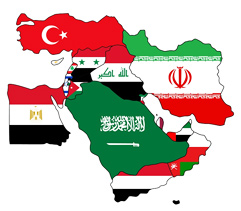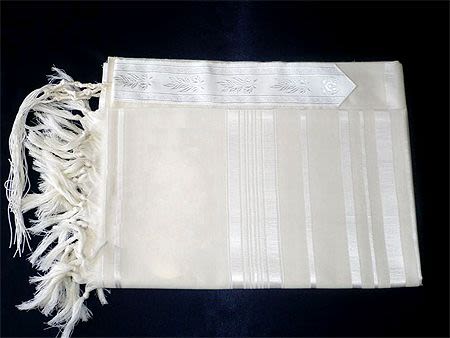
Va’etchanan: The Few Against the Many
Our sovereignty over the Land of Israel depends on emuna, where we believe that we have the power to exist amidst a sea of hostile neighbors...

"…for you are the fewest of all the nations.” (Deuteronomy 7:7).
People ask for proof that there's a God in the world. The Jewish People are that proof.
How long would a lamb last in a den of hungry lions? Before you count to ten, there wouldn't be a strand of wool left to floss your teeth with.
The greatest and mightiest civilizations have come and gone. Those who conquered the world no longer exist. Yet, the Jewish People defy all natural law. Despite the never-ending persecution and exile and the powerful enemies who have not only threatened but tried their utmost to rid the world of us, we are still here.
How do the Jewish People defy nature? Rebbe Nachman of Breslev explains[1] that prayer is not only above nature, but it alters nature. Yet, for prayer to have the power to alter nature, it must be fueled with emuna. The person who prays must believe that Hashem hears his prayers and that Hashem can do whatever He wants whenever He wants. Rebbe Nachman stresses that the main manifestation of emuna is earnest prayer, which is capable of triggering miracles. What's more, he adds, this level of emuna,  prayer and miracles is native to the Land of Israel.
prayer and miracles is native to the Land of Israel.
In this same Torah portion, Hashem commands the Jewish People to take hold of the Land of Israel and to wipe out the seven Canaanite tribes that currently occupy it. These are, as the Torah testifies, “Seven nations greater and mightier than you”[2]. According to nature, there's no way of defeating even one of them, much less all seven. The Jewish People must therefore rely on a supernatural power to fulfill Hashem's commandment.
Emuna is that supernatural power. Without emuna, there's no way of performing Hashem's will. We can therefore conclude that emuna is a necessary factor in fulfilling Hashem's commandments. Our sovereignty over the Land of Israel depends on emuna, where we believe that we – the tiny nation of the Jewish People – have the power to exist amidst a sea of hostile neighbors all around us, alone, with no one to depend on but Hashem. This is the rectification of the sin of the spies, who looked at the world through eyes of nature and therefore lacked emuna. They therefore said that they couldn't go up and seize the Land of Israel because the nations there are “stronger than us.”[3]
With the above in mind, we can understand why Moses wanted to enter the Land of Israel so badly. With all his heart, he yearned to see, “Your greatness and Your mighty arm”[4]. Moses knew that the Land of Israel couldn't be conquered without overriding nature; since Hashem so commanded, Moses yearned to see the miracles that he knew would take place. He also knew that prayer is the manifestation of emuna and that the highest level of emuna can only be attained in the Land of Emuna[5]. As such, he prayed 515 times for Hashem to overturn the decree that he would not be allowed to enter the Land of Israel. Yet, Hashem has His own reasons, and for the good of the Jewish People, Moses wasn't allowed to enter the Land.
Recently, the world powers capitulated to Iran in a nuclear agreement that isn't worth the paper it's printed on. Iran as well as our other neighbors are committed to destroying us. Yet, we have nothing to fear. Moses's blessing, "…for you are the fewest of all the nations,” has withstood for over thirty centuries and will continue to withstand us. Not a hair of a Jewish head in the Land of Israel will fall from an Iranian nuclear weapon. Wait and see the miracles that are in store for us. Our task is simply to strengthen ourselves in emuna and to devote an extra few minutes of prayer every day for the Jewish People, particularly for the Jewish People in the Land of Israel, may we all be together soon in the ingathering of the exiles and the coming of Moshiach, speedily in our days, amen!
[1] Likutei Moharan I:7
[2] Deuteronomy 7:1
[3] Numbers 13:31
[4] See Deuteronomy 3:23-24
[5] See Ketubot 110b-111a












Tell us what you think!
Thank you for your comment!
It will be published after approval by the Editor.